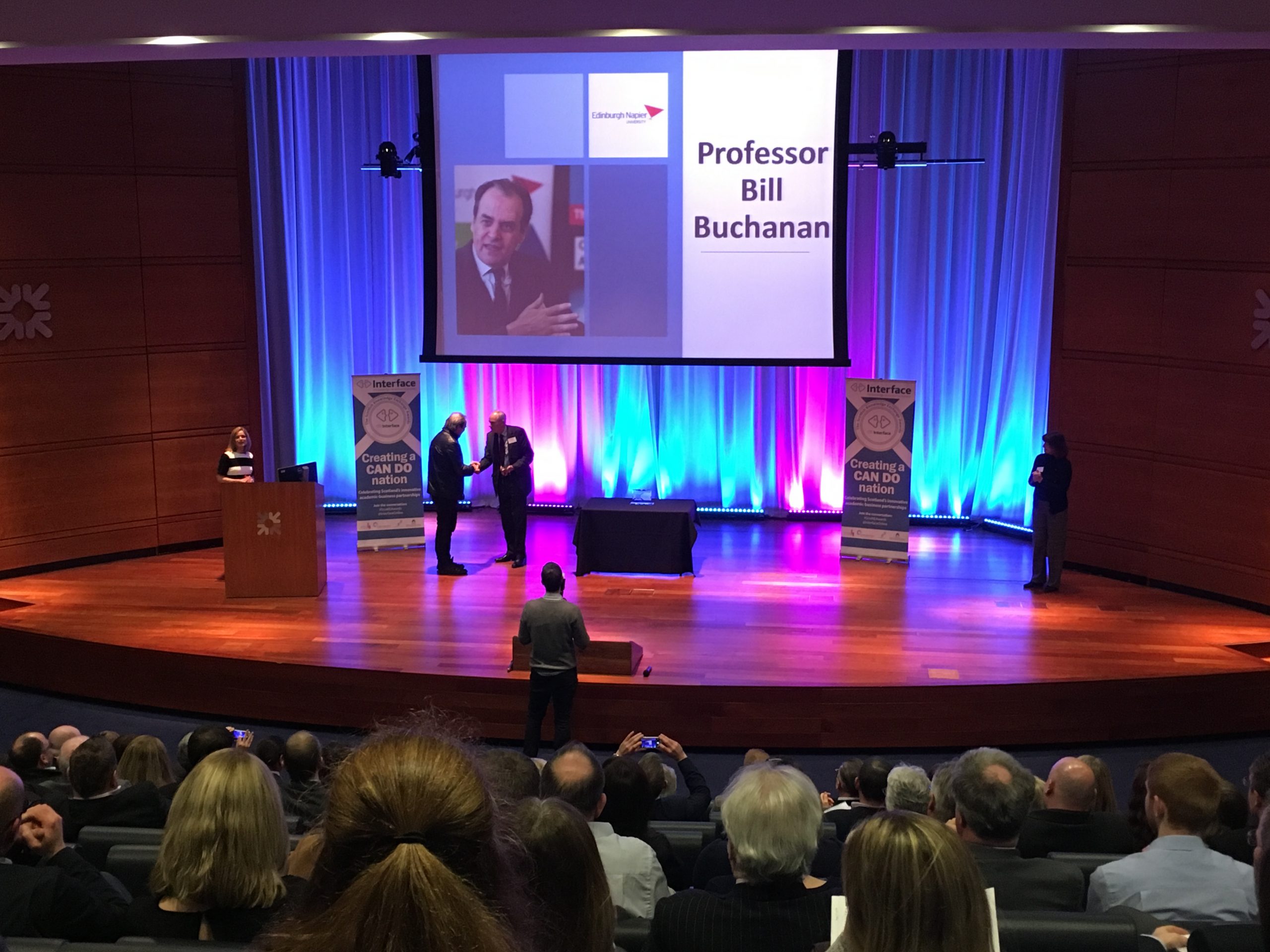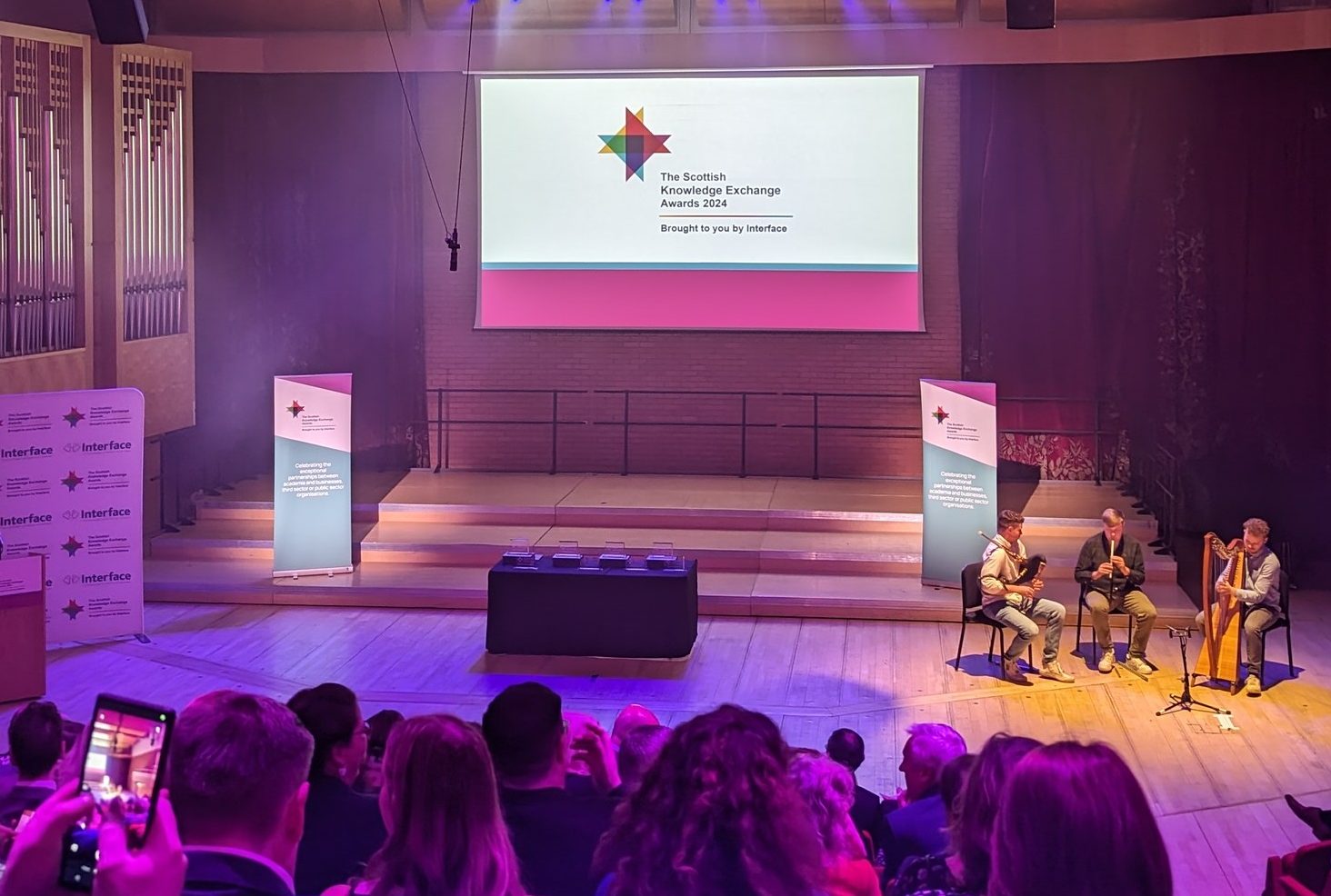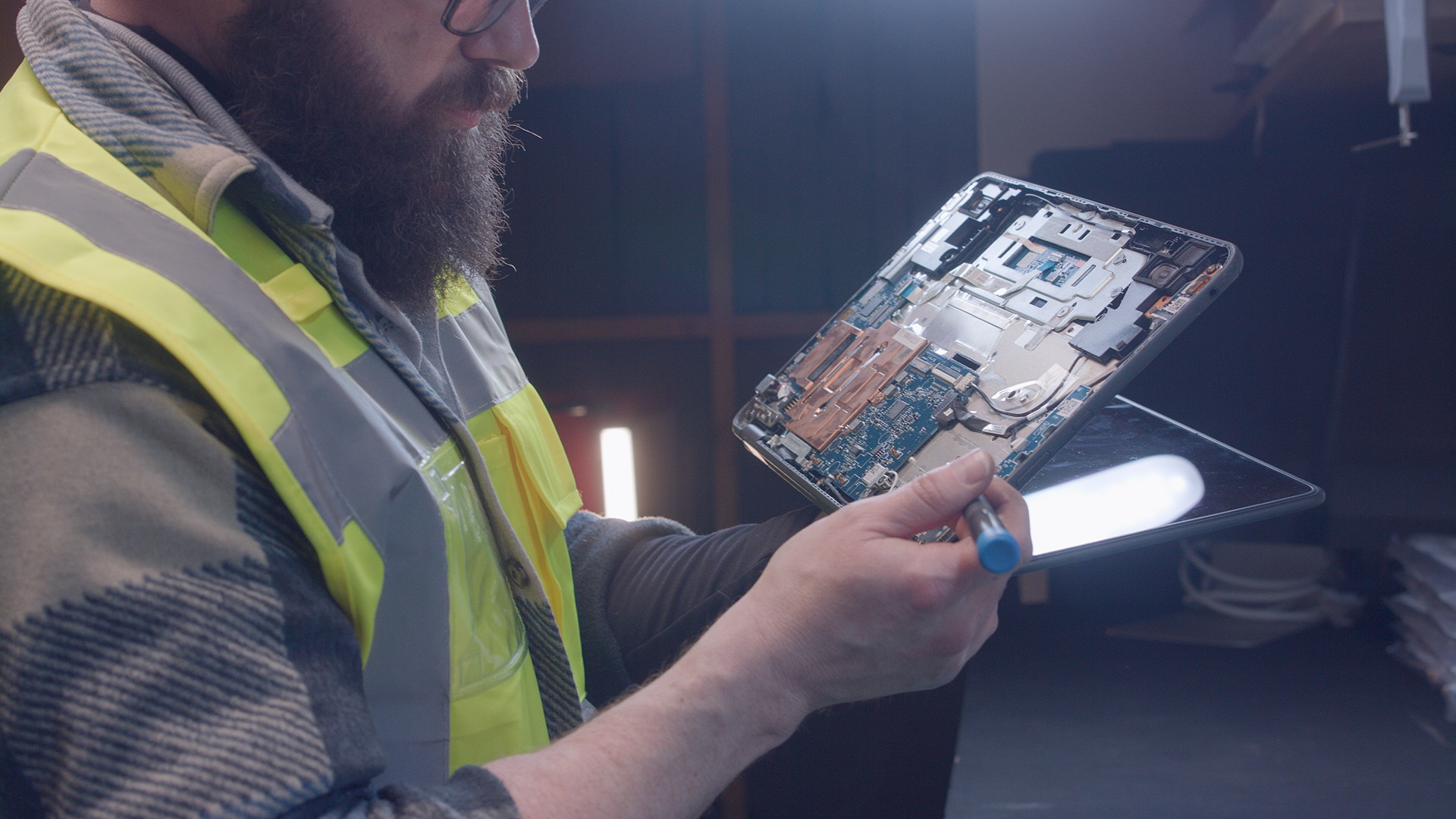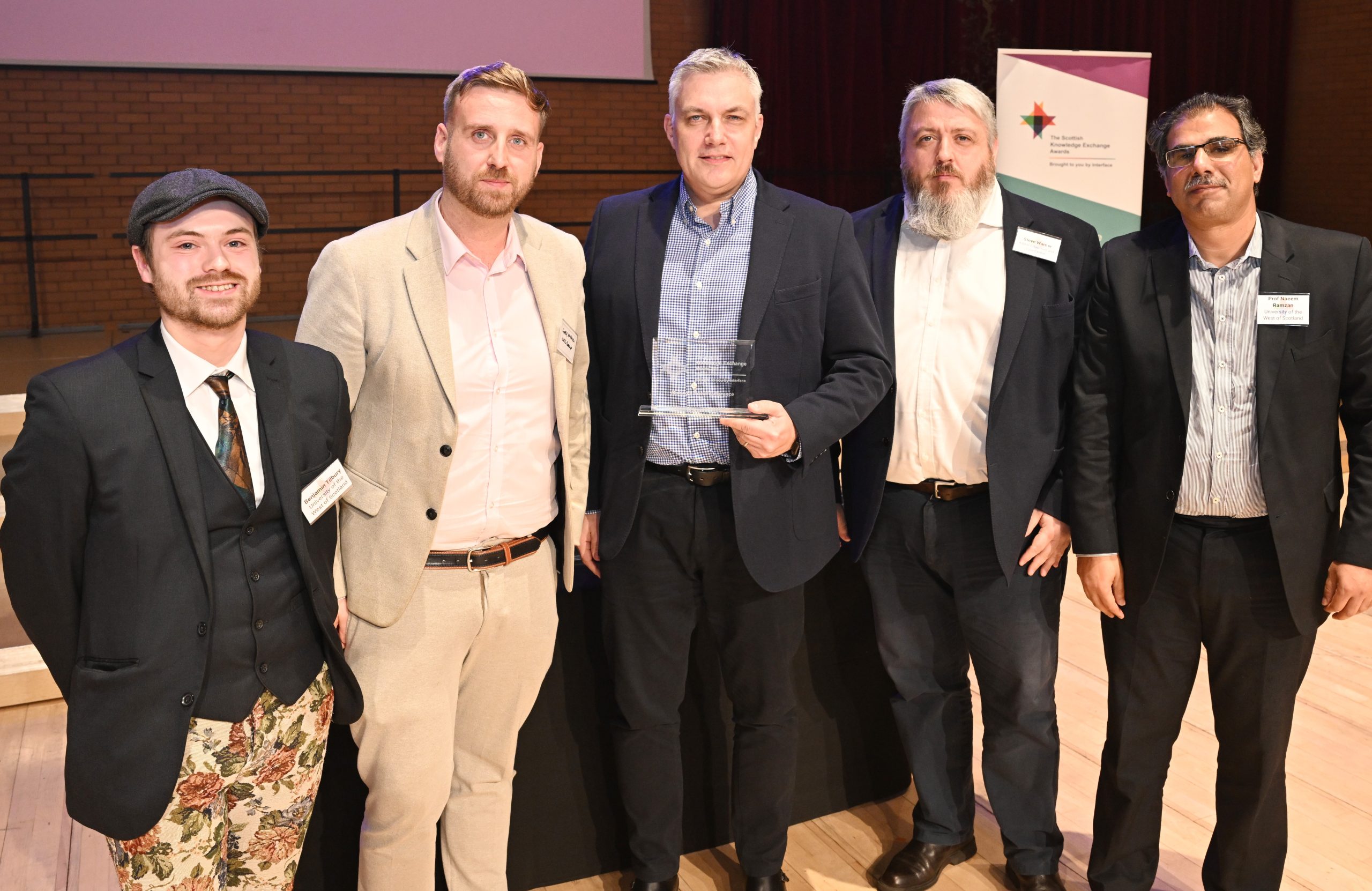Blog
A Year Gone Past

Well. It has been a nearly year since I gained a recognition for an Outstanding Contribution at the Scottish Knowledge Exchange awards.
At the event last year, I sat and listened to others say nice things about the work that I had been involved with. But it had also involved so many other talented and dedicated people. And so I was lucky to get some form of recognition, but it was mainly my luck to have worked with so many great people, and who have contributed so much in creating things that have had such an impact.
Prof Linda Hill, from the Harvard Business School, defines that innovation is ‘crafted by the hands of many and not from a single person, and where a leader is able to unleash talent in order to enact collective genius’. Leadership, she says, is there ‘to keep the innovation progressing, otherwise it is likely to run out of stream’. For her, leadership in innovation involves: common purpose; shared values; and mutual rules of engagement. Our future thus depends on us finding and supporting these leaders, and wherever we can find them.
In academia — at the end of the day — it is your impact that really matters, and academic teams must always question themselves. How has our work changed our world? What economic benefit have we brought to our society? And, in the end, we can measure the number of citations on our papers, or the quality of journals, but what really matters is the actual long-term impact of our work — our lasting legacy. If we can point to the creation of high-quality jobs or new ways of improved health care, we can all look back and know that we have made a difference — even if it is ever so small.
As an academic, I believe that education, collaboration and knowledge exchange are at the core of our society, and that we should never stop learning and teaching others. It is our role in life, too, to listen to others and to pass our knowledge. We should never get stuck with our knowledge boundaries, and must always look to push ourselves to think and learn deeply about things. Innovators never take the status quo for granted, and forever question things. Prof Linda Hill thus defines innovation as a journey:
… a collaborative problem-solving process, where discoveries happen through a process of trial and error, false starts, and even mistakes. The process can be exhilarating. But as many of us know all too well, it can also be downright scary.
In the end, everything can be improved, and being a small and innovative company, you can take on companies that are many times your size, and win. I always love seeing a small companies winning over a large ones, and it shows me that we will not end up with a world that is dominated by large and faceless companies. Large companies will eventually fall when they stop innovating, and new companies will grow in their place.
When a company gets to a certain size, it can become risk-averse and less dynamic. They can also struggle to change themselves, and in providing opportunities for their staff to stimulate new ideas. With partnerships such as Interface, those great people can be supported in the early stages with their innovation, and then for academia to provide a trusted partner in making sure that their work can move to the next level. And the helping hands for SMEs are all around us in Scotland, as we care greatly about making sure we have a strong foundation for the future of our economy.
For me, a healthy economy, with stimulating opportunities, leads to healthy people, and which leads to healthier cities, and, in the end, a healthier world. I respect everything that my city and university have contributed to both my career and my family life, and thus to support economic benefits is one of the great benefits of my role.
Our start-ups — Zonefox, Symphonic and Cyan Forensics — were all created with a vision and a core problem, and which have since grown into confident and dynamic companies, and which have used Scotland as their talent base. As a father, I have taken pride in watched my kids grow into confident people, and in a similar way, I have taken pride in watching the companies and individuals that we have helped along the way. And when it comes down to it, it is people that innovate, and it is people with vision and determination who will map our future. You can throw money at R&D, but there’s never any guarantee that it will end up doing anything that is useful.
In Scotland, we have a general love of education. It is at our core and in our DNA. We also embrace others from around the world within our cities, and we hope to build on a vision of a confident, enterprise, fair, open and friendly country. Our next generations, especially, must thus be given the best opportunities that they deserve, and it is our place to make sure that we build a solid foundation for them — both from an economic and from a technological point-of-view.
And so we turn to our students, our apprentices, our school kids, and others with new ideas, in bring forward the next great companies. We must also continue to attract the brightest minds from around the world to come and live in, and make Scotland their home.
And so my advice if you have an idea and or need to take your innovation to the next stage … you must go and talk to Interface. With an innovation voucher, and a great publishing company (Bright Red Publishing), we helped create an educational environment for Scottish pupils and which supports virtually every subject they study — and all free of charge. And this collaborate continues to this day, and where there are around over 100,000 pupils registered on the system, with millions of tests taken. There are few things in our society that are more important than the education of our kids, and an innovation voucher helped create something that can help our kids to achieve their best potential.
Overall, it takes a passion and a long-term goal to see things through. Innovation has many bumps and false-starts along the way. For us, we have been guided by improvements in health and social care, and in creating worlds which respect the rights of the citizen to freedom and privacy. When it comes down to it, these are our passions, and we push them forward at any opportunity. But we are always careful to listen to others, and respect their opinions and viewpoints. Linda defines one of the attributes of innovation with reactive abrasion and:
creating an environment which supports discourse and debate, and where people listen to ideas, and where breakthroughs cannot thrive where there is no diversity of thought, nor conflict.
Knowledge, education and collaboration should be at the core of everything that we do, and is the best way to free people from environments which constrain their potential. For me, too, knowledge exchange works best when there is a two-way exchange, and this knowledge can be passed onto others. We learn, but as we learn, we move forward. Nelson Mandela said it best as:
No country can really develop unless its citizens are educated. Education is the most powerful weapon which you can use to change the world. Education is the great engine of personal development.
Personally, I want to play my small part in contributing to creating an environment for our next generation, and winning the award last year has made me all the more determined for that to happen. I wish the best to the next recipient, and I personally look forward — every day — to hear about the next great idea. My role as a Professor allows me to be a trusted ear, and my knowledge allows me to help innovation along the way. I can be part of this collective genius.
I adore my cultured, educated and enterprising city, and everything that it has given me and my family. And so to live and work the most beautiful country on the planet, and in a place that once hosted the mighty John Napier — and then to meet people with great ideas and different viewpoints — is a privilege that makes every single day so special. My reward last year was to be recognised for doing something that I truly love.
Let Scotland continue to be a country which has education, innovation, and collaboration at its heart. So, in conclusion, I repeat … go talk to Interface and continue your journey, and, … “Make a dent in the universe” (attributed to Steve Jobs).
Interested in accessing academic support? Please contact us.



